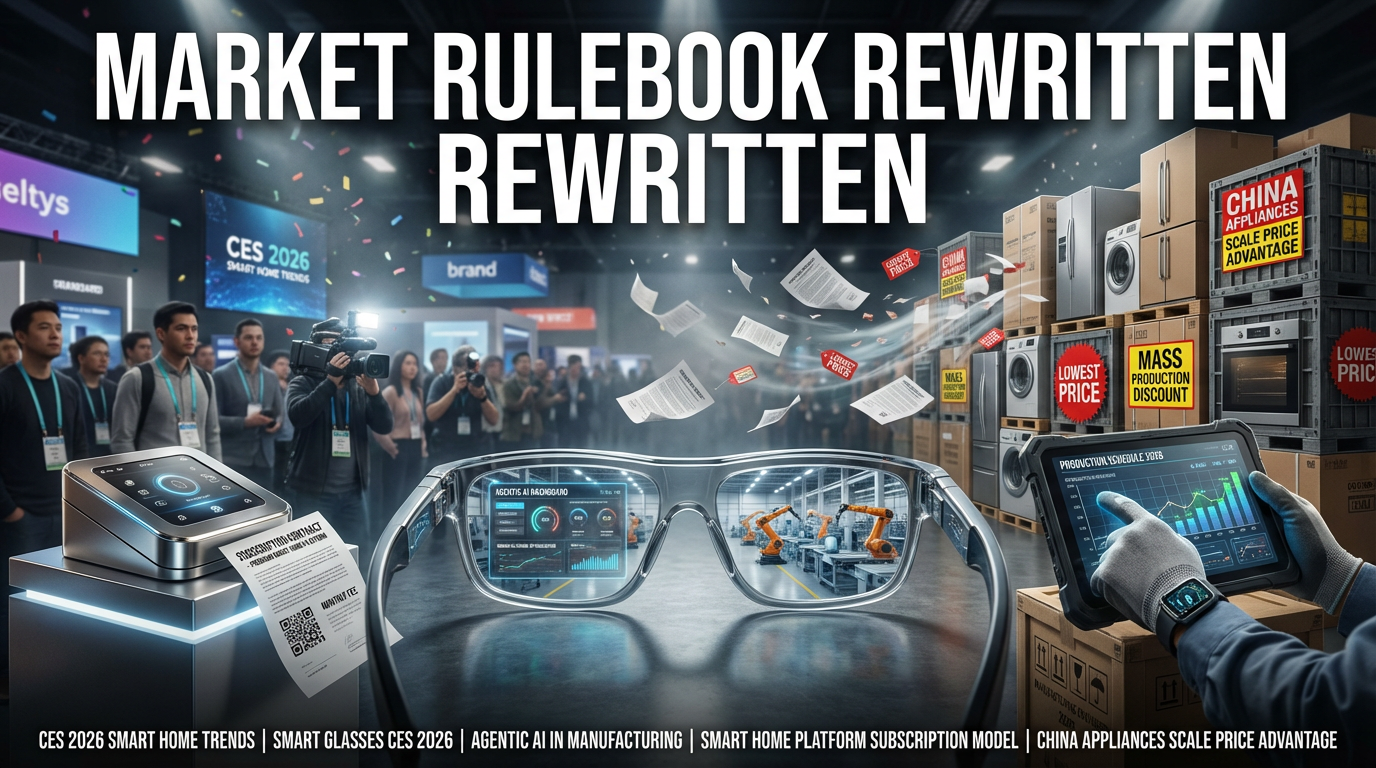● 40s-50s Job Killer – AI Drives Global Layoff Storm
“Thunderbolt” for 40s-50s! The Reality of Global Restructuring and Breakthroughs in the AI Era
1. Global IT Company Restructuring: Its Devastating Impact
Recently, global IT companies, led by MS, have carried out unprecedented large-scale workforce reductions.
MS, after two rounds of restructuring this year, has now specifically targeted middle managers with a record-breaking layoff of 9,000 people.
This move is intended to increase efficiency and ensure organizational flexibility, but it’s notable that managers in their 40s and 50s are particularly hard hit.
The key point, according to global economic outlook experts, is that such large-scale restructuring is more than just workforce reduction; it will be a turning point in the coming era of IT innovation, where AI adoption and automation will require learning and adaptation.
2. Domestic Conglomerates’ ‘Voluntary Resignation’ Strategy and Its Impact
Major domestic telecommunications and IT companies are also adopting voluntary resignation schemes, aligning with global trends.
Companies like KT, LG Uplus, and SK Telecom have embarked on generational change by offering attractive severance packages and retirement conditions to managers aged 40 and above, and long-term employees.
Notably, some companies are offering conditions that support up to three times the annual salary, paying severance packages of up to 400 million won, achieving large-scale workforce restructuring in a short period.
Similarly, domestic companies are undergoing agile organizational restructuring through downsizing and workforce reduction to adapt to new technology trends and AI adoption.
3. AI Adoption and Automation Era: Concerns over Workforce Replacement
Another background to large-scale layoffs and voluntary resignations is the remarkable advancement of AI and automation technologies.
As AI performance improves to the extent that it can replace existing white-collar jobs, companies are reducing hiring to cut costs and increase efficiency.
According to data from HR and recruitment platforms like Saramin, job postings for experienced developers in the domestic IT industry have also significantly decreased this year compared to the previous year.
This situation will significantly impact future economic forecasts and restructuring trends, requiring both companies and employees to adapt quickly to the changing environment.
4. Future Outlook and Response Strategies
In the future, restructuring is highly likely to become more frequent alongside the impending economic recession.
Global economic outlook experts anticipate that the fusion of AI innovation and IT technology will open a new industrial paradigm, yet they express concern about the short-term negative effects of workforce reduction.
Therefore, in the mid-to-long term, transition education, re-employment support, and individual capability enhancement will become paramount.
Companies also need to re-evaluate their talent development strategies and respond agilely to changing market environments.
Thus, the cases of restructuring and ‘voluntary resignation’ by MS and domestic conglomerates demonstrate that they are at the forefront of the new AI era and the resulting economic changes, going beyond simple workforce reduction.
Summary
Global IT companies, led by MS, have carried out large-scale layoffs of 9,000 people, with managers in their 40s and 50s being significantly impacted.
Domestic conglomerates are also promoting generational change and cost reduction through voluntary resignation schemes, an unavoidable change due to AI adoption and advancements in automation technology.
In preparation for the upcoming economic recession and the advent of the AI era, strengthening individual capabilities and corporate re-organization are expected to become essential tasks.
(Includes keywords: Global economic outlook, MS, AI, restructuring, IT innovation)
[Related Articles…] MS Large-Scale Restructuring Site | AI Innovation and the Job Market
*Source: https://mbiz.heraldcorp.com/article/10545494

● AI’s Hidden Cost – Social Stigma Roils Global Economy
The Impact of Generative AI Utilization in the Workplace and Changing Social Perception on the Global Economy
Social Dynamics of AI Utilization in the Workplace as Seen Through a Series of Experiments
In the first experiment, approximately 500 participants revealed a perception that using AI tools might make them appear lazy and incompetent.This result suggests the possibility of negative evaluation among colleagues, even though it is an effort to increase productivity.Such a phenomenon is a crucial point often overlooked when analyzing the global economy and market outlook.
Peer Evaluation Experiment and the Difference Between Human and AI Assistance
In the second experiment, over 1,200 participants evaluated three different work processing methods.They judged that employees who received AI assistance appeared lazier and more lacking in competence and diligence than those who received traditional human assistance.This can act as a significant socio-psychological factor influencing economic trends and investment strategy formulation.
The Paradox of AI Utilization Preference Revealed in the Hiring Process
The third experiment revealed a difference in perception between job candidates and hiring managers.When hiring managers had personal experience using AI, they showed a preference for candidates who utilized AI.These results suggest that evaluation criteria are changing in response to digital innovation in the formulation of fiscal policies and corporate investment strategies.
AI Evaluation by Task Type: The Difference Between ‘Manual Work’ and ‘Digital Work’
In the fourth experiment, a clear difference in evaluation emerged between ‘manual tasks’ performed directly by a person and tasks performed using digital tools.Specifically, while AI use is likely to receive negative evaluations in traditional work environments, it is perceived positively in digital work environments.Such changes are important turning points that can be reflected in global economic investment strategies and fiscal policies.
The Impact on the Overall Economy and Future Outlook
Today, AI-related innovations are significantly impacting not only market outlooks but also the organizational culture within companies.Many companies are focusing on AI adoption to strengthen economic trends and global economic competitiveness, which is directly linked to investment strategies and fiscal policies.The fact that the use of generative AI tools can increase work productivity while simultaneously leading to unexpected social disadvantages is a significant truth not deeply covered by traditional media.It is a matter that must be considered when formulating future policies, focusing on top SEO keywords such as global economy, market outlook, economic trends, investment strategy, and fiscal policy.
< Summary >Changes in social perception due to AI utilization in the workplace were revealed through experiments.The first experiment showed that AI users tend to have a perception implying their incompetence and laziness.The second experiment confirmed a tendency for employees who received AI assistance to be evaluated more negatively than those who received traditional human assistance.The third experiment found a phenomenon where evaluations in the hiring process varied depending on an individual’s AI experience.The fourth experiment clarified that AI evaluations differ according to work type.All these results provide important implications for the economy as a whole, including the global economy, market trends, investment strategies, and fiscal policies,and are expected to significantly influence future economic outlooks and corporate strategy formulation.
[Related Articles…]AI Innovation Strengthening Global Investment StrategiesChanges in Market Outlook and Fiscal Policy
*Source: https://search.app/WrLtm

● AI’s Cold Cull Tech Layoffs Decimate Junior Ranks.
AI Transformation and Post-Pandemic Economic Cooling: The Upsurge in Tech Layoffs and the Shrinking of Entry-Level Roles
1. Post-Pandemic Hiring Slowdown and Overall Economic Cooling
As companies focus on AI adoption and global economic restructuring, the post-pandemic hiring frenzy has subsided. This period significantly impacts the overall economic outlook amidst recession concerns and inflationary pressures. According to job platform data, the number of job postings in tech roles has sharply declined compared to pre-pandemic levels, a change noted by global economy and economic forecast experts. Concurrently, there’s a growing movement to restructure existing workforces for efficiency and cost reduction.
2. The Hidden Side of AI Adoption: Large-Scale Layoffs and Pressure on Entry-Level Roles
Many IT companies are carrying out large-scale layoffs under the guise of AI transformation. It’s not merely AI replacing jobs; rather, cost reallocation for AI infrastructure build-out and talent acquisition is serving as the primary cause. Especially, entry-level and junior positions are being hit, exacerbating imbalances within the tech industry. In this process, companies are focusing on talent capable of driving innovation, while those with mid-career or senior experience are relatively protected.
3. Major Companies’ Strategic Shifts and Increased Investment
Major IT companies are accelerating their investments in AI technology and infrastructure. For instance, Microsoft, despite significant layoffs, saw profits surge due to AI investments and presented a positive revenue outlook for fiscal year 2026. Google also reorganized its investment strategy, injecting massive capital into AI-related infrastructure such as data centers and semiconductors. These strategies are considered key elements for securing long-term global economic competitiveness, extending beyond short-term workforce reductions.
4. Changing Workforce Structure and Future Job Prospects
The changes brought by AI adoption are impacting not only the tech industry but also various other sectors. Specifically, some job functions like language interpretation and customer service are threatened by AI automation, while roles such as medical assistants and hazardous material removal specialists appear relatively secure. Furthermore, the demand for talent capable of leading innovation by leveraging AI technology is, in fact, increasing. From the perspective of global economics and investment strategy, economic forecast experts analyze that the shrinking of entry-level roles merely signifies a short-term downturn, but will lead to the creation of new opportunities through technological innovation in the long term.
5. Expert Analysis and Future Outlook
Various economic analysts and strategists view this AI transformation not merely as a technological change but as part of a broader global economic restructuring process. Despite short-term workforce reductions, companies anticipate higher profitability through long-term investment and innovation. This perspective, along with SEO keywords such as economic forecast experts, investment strategists, global economy, tech layoffs, and AI revolution, emphasizes the importance of formulating investment strategies to overcome current market instability. Moving forward, it is necessary to continuously monitor companies’ AI technology adoption and workforce restructuring trends to provide information crucial for understanding overall economic changes and formulating investment strategies.
[Related articles…]The Hidden Side of AI Transformation | The Reality of Large-Scale Layoffs
*Source: https://search.app/npcuJ

● AI’s Cold Cull Tech Layoffs Decimate Junior Ranks.
AI Transformation and Post-Pandemic Economic Cooling: The Upsurge in Tech Layoffs and the Shrinking of Entry-Level Roles
1. Post-Pandemic Hiring Slowdown and Overall Economic Cooling
As companies focus on AI adoption and global economic restructuring, the post-pandemic hiring frenzy has subsided. This period significantly impacts the overall economic outlook amidst recession concerns and inflationary pressures. According to job platform data, the number of job postings in tech roles has sharply declined compared to pre-pandemic levels, a change noted by global economy and economic forecast experts. Concurrently, there’s a growing movement to restructure existing workforces for efficiency and cost reduction.
2. The Hidden Side of AI Adoption: Large-Scale Layoffs and Pressure on Entry-Level Roles
Many IT companies are carrying out large-scale layoffs under the guise of AI transformation. It’s not merely AI replacing jobs; rather, cost reallocation for AI infrastructure build-out and talent acquisition is serving as the primary cause. Especially, entry-level and junior positions are being hit, exacerbating imbalances within the tech industry. In this process, companies are focusing on talent capable of driving innovation, while those with mid-career or senior experience are relatively protected.
3. Major Companies’ Strategic Shifts and Increased Investment
Major IT companies are accelerating their investments in AI technology and infrastructure. For instance, Microsoft, despite significant layoffs, saw profits surge due to AI investments and presented a positive revenue outlook for fiscal year 2026. Google also reorganized its investment strategy, injecting massive capital into AI-related infrastructure such as data centers and semiconductors. These strategies are considered key elements for securing long-term global economic competitiveness, extending beyond short-term workforce reductions.
4. Changing Workforce Structure and Future Job Prospects
The changes brought by AI adoption are impacting not only the tech industry but also various other sectors. Specifically, some job functions like language interpretation and customer service are threatened by AI automation, while roles such as medical assistants and hazardous material removal specialists appear relatively secure. Furthermore, the demand for talent capable of leading innovation by leveraging AI technology is, in fact, increasing. From the perspective of global economics and investment strategy, economic forecast experts analyze that the shrinking of entry-level roles merely signifies a short-term downturn, but will lead to the creation of new opportunities through technological innovation in the long term.
5. Expert Analysis and Future Outlook
Various economic analysts and strategists view this AI transformation not merely as a technological change but as part of a broader global economic restructuring process. Despite short-term workforce reductions, companies anticipate higher profitability through long-term investment and innovation. This perspective, along with SEO keywords such as economic forecast experts, investment strategists, global economy, tech layoffs, and AI revolution, emphasizes the importance of formulating investment strategies to overcome current market instability. Moving forward, it is necessary to continuously monitor companies’ AI technology adoption and workforce restructuring trends to provide information crucial for understanding overall economic changes and formulating investment strategies.
[Related articles…]The Hidden Side of AI Transformation | The Reality of Large-Scale Layoffs
*Source: https://search.app/npcuJ



